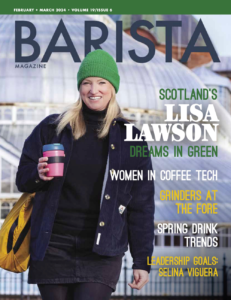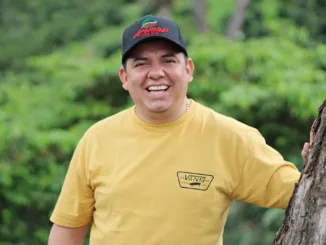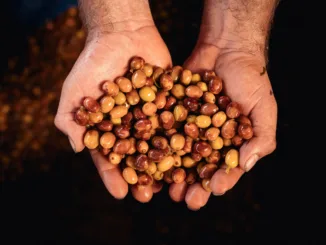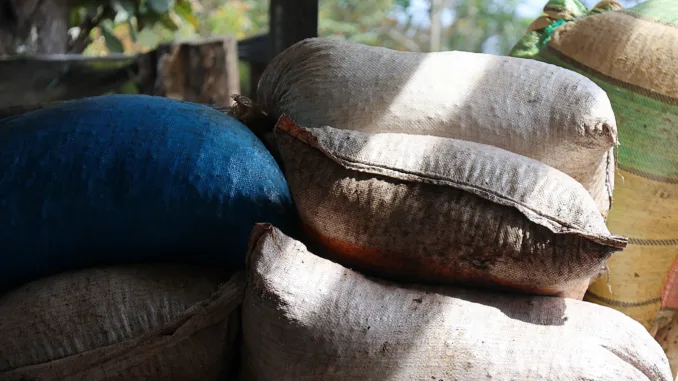
El Puente is a project focused on improving opportunities for smallholder coffee producers in Huila, Colombia.
BY EDDIE P. GOMEZ
SPECIAL TO BARISTA MAGAZINE
Photos by Lina Vanessa Salazar
As we discussed in the first part of this article yesterday, El Puente is a combined effort that maximizes each partner’s place in the supply chain. One goal is to produce natural coffees through value-added processing. This results in high-quality coffees that are still decently priced. The project buys freshly harvested cherries from allied smallholders in the region and pays them a price equivalent to premium-grade coffee. It also assumes the responsibility of fully processing the coffees and readying them for the export market. Clearpath Coffee puts those coffees in the hands of buyers from around the world.
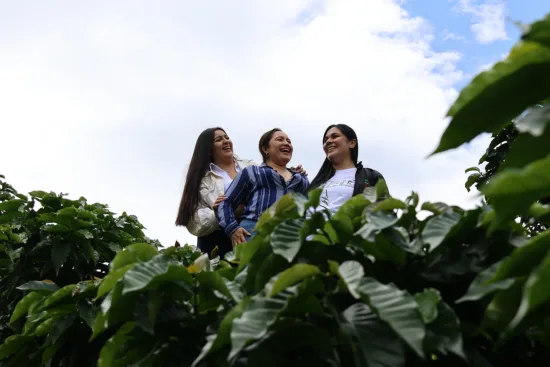
A Focus on Local Producers
At Las Nubes coffee farm in Pitalito last fall, a construction crew busily put the finishing touches on the roof structure of a composting facility set to work in conjunction with El Puente. The facility will process over 400,000 kilograms of organic compost per year, enabling greater sustainability and a reduction in the use of chemical fertilizers on the farms involved in the project. On the margins of the facility, Rodrigo Sanchez—co-owner of one of El Puente’s leading partners Aromas del Sur—motioned for Mark Trujillo, owner of Reno, Nev.’s Hub Coffee Roasters, and I to join him. Rodrigo and his wife, Claudia Samboni, partner with Mark on two farms; Mark visits often to source coffee and check on them. Rodrigo invited me along to learn more about how El Puente is making a difference in the lives of small-scale growers in the area.
Rodrigo began to describe the pillars that guided El Puente’s formation. A top priority: elevating the social value of the region’s coffee industry by helping to form close bonds among local producers. He pointed to the houses where small-lot growers live that sporadically dot the hills below his farm. “El Puente allows us to work together to give back to our friends and neighbors, the same people who have given us so much support. Many of them live week to week,” Rodrigo said. “El Puente sees their coffees through until they are cupped and scored, which means they can get a higher price rather than selling parchment coffee at a low price to multinationals.”
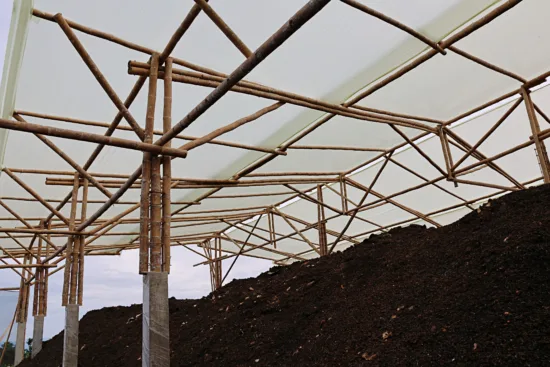
Increased Sustainability
The project also aims to lessen the negative effects that coffee growing has on the local environment. El Puente focuses on processing natural and honey coffees because those processes have a lower environmental impact. Rodrigo mentioned that it takes around 45-47 liters of water to process a kilo of washed coffee; naturally processed coffee uses 5-7 liters of water to produce that same kilo of coffee. By focusing on natural and honey processes—their current makeup is 60% natural, 20% honey, and 20% washed—the facility uses 80% less water. Another benefit of offering a majority of naturally processed coffee? Less ozone-damaging methane is released into the environment because the fruit isn’t broken down through composting.
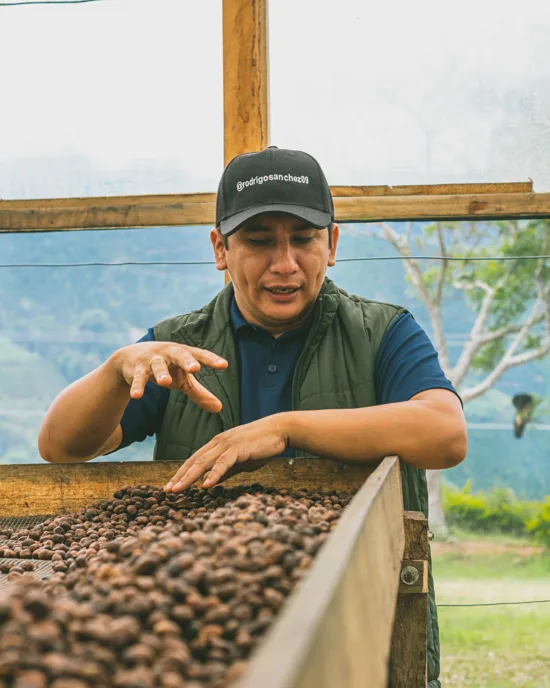
El Mirador
At El Mirador in Palestina the following afternoon, Elkin Guzman walked us through rows of shade-grown, Red Bourbon coffee trees that occupy a hillside above his farm. He took us to the processing facility afterward. There, we got a better understanding of El Puente’s third pillar, which is rooted in uplifting the economic lives of small-scale producers. We saw for ourselves the investment in infrastructure upgrades on the farm to accommodate small-scale producers working with El Puente. The resulting collaboration binds the area’s producers to each other as they work toward mutual objectives that are socially conscious but driven by the industry’s economic realities.
Later, we made our way through an expansive system of drying beds, filled to capacity with naturally processed coffees. At a newly constructed warehouse staging area, Elkin directed our attention to the platform where growers arrive with their harvested cherries before handing them over for processing. With the flick of a switch on the other side of the platform, machinery used to process the coffee that El Puente buys from small-scale producers came to life. The sparkling equipment was brand-new. It hummed a comforting tune, which gave everyone within earshot a reason to gather up and listen to Elkin explain how debris is separated from coffee cherries when they first arrive.
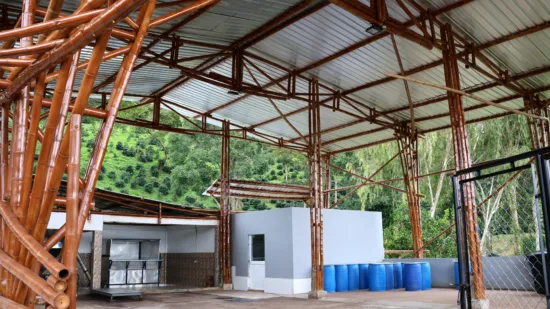
Cupping at Pitalito
That afternoon, we visited the dry mill in Pitalito, where we cupped more than 20 coffees. The sampling yielded an almost indescribable array of flavors, unforgettable in their quality and lingering aromatics. The experience was further evidence that the impact of the El Puente initiative can be measured across many fronts. It’s a forward leap that will ripple through the region’s economy and up the supply chain into the hands of waiting consumers, whether they are in Bogota, Tokyo, or Copenhagen.
ABOUT THE AUTHOR
Eddie P. Gomez (he/him) is a freelance writer based in Modesto, Calif. When he is not substitute teaching kindergarten classes, he wanders from city to city, perfecting the art of the food and coffee adventure.
Subscribe and More!
Out now: It’s the February + March 2024 issue of Barista Magazine! Read it for free with our digital edition. And for more than three years’ worth of issues, visit our digital edition archives here.
You can order a hard copy of the magazine through our online store here, or start a subscription for one year or two.

